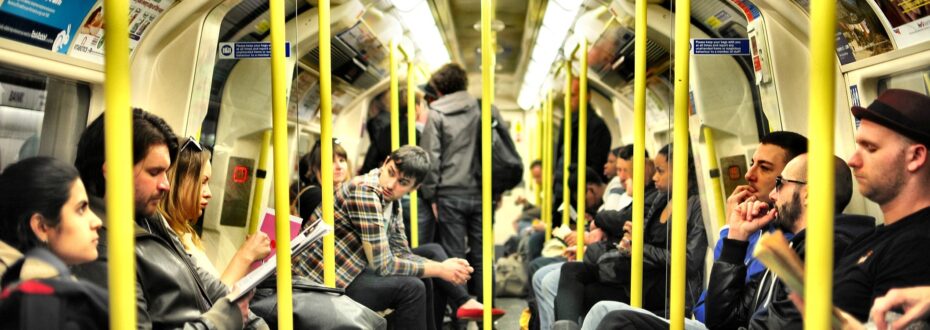A few years ago, I was working on a project on social exclusion and travel. Discussions with a group of older and disabled people made me realise how little sound research has been carried out on travel by disabled people. Furthermore, much of what has been done focuses on travel by people in wheelchairs and people with visual impairments. I decided to review the existing evidence relating to travel by people with disabilities such as dementia, autism and mental health conditions. That was published by DPTAC (Disabled Persons Transport Advisory Committee) of which I am a member. As a result, I realised that there was scope for a survey specifically about the travel behaviour of people with mental health conditions.
We received 385 useable responses from people who all had one or more mental health condition. The age, gender and mental illness distributions of the respondents were similar to those for people with mental health conditions in the whole country.
Over a third told us that they frequently cannot leave home because of their mental illness… About half cannot use buses or trains.
Most of the respondents have more than one mental health condition. About 90% have anxiety issues and 68% have depression. Over a third told us that they frequently cannot leave home because of their mental illness, and day-to-day fluctuations in their health mean that over half cannot buy advanced train tickets, so they miss out on some of the cheapest fares. About half cannot use buses or trains.
When they do go out, the biggest cause of anxiety was the attitudes and behaviour of other people, for example, the man who asked for £30 in order to give up his seat on the train to a person who needed to sit down. Having to talk to staff such as bus drivers makes nearly half of the respondents anxious. Another major cause of anxiety is finding the way without becoming lost. And 40% are anxious about finding suitable toilets when travelling, particularly older people.
When they do go out, the biggest cause of anxiety was the attitudes and behaviour of other people
But there were also a number of factors identified which would encourage people with mental health conditions to travel more by bus and train, such as clearer information before and during travel; better trained staff; and, in the case of trains, being able to contact a member of staff in person when on board. Very few of the respondents possess travel assistance cards, concessionary bus passes or similar initiatives, but many of them say that these would encourage them to travel more. Another area which causes anxiety is when the bus or train service is different to the expectations of the traveller, such as a bus being diverted or being turned back sooner than originally advertised, or a train breaking down in a tunnel. In these cases there needs to be clear information given about what is happening and why, and how travellers should complete their journey.
In light of these responses, it is clear that there are some tangible changes in policy and practice which would significantly improve the mobility and wellbeing of people with a mental health difficulty using public transport. Many people are deterred from walking by noise, traffic and overcrowding, so designating ‘quiet routes’ in urban areas and showing these on maps would help. Other things respondents said might help were being able to contact the train conductor by mobile phone when assistance is required; easier access to Disabled Persons Railcards and other concessions and cards asking taxi drivers not to chat. They also mentioned that it would be helpful to have more ‘Safe places’ where they can talk to a trained member of staff who can contact a friend or family member, and more options for public transport routes on wayfinding apps such as avoiding tunnels.
Many people are deterred from walking by noise, traffic and overcrowding, so designating ‘quiet routes’ in urban areas and showing these on maps would help.
People with mental health difficulties deserve fair access to public transport, but current conditions in the system can make it too difficult for some to access. The changes recommended in this report would mean that a significant proportion of the population would find it easier to travel and thus have more equal access to society’s assets.
Roger Mackett works for the Centre for Transport Studies based at University College London. The full report can be downloaded here


